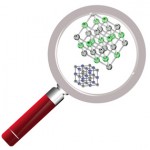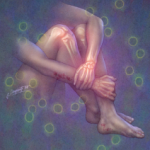Technological advances, including disease registries such as ACR’s RISE registry, are improving physicians’ ability to connect disparate patients with similar clinical symptoms, driving insights into both rare and common diseases.


Allison Plitman |
Technological advances, including disease registries such as ACR’s RISE registry, are improving physicians’ ability to connect disparate patients with similar clinical symptoms, driving insights into both rare and common diseases.
Preclinical models have provided important insights into the pathogenesis of OA and potential pathways for therapeutic intervention, including adenosine. Ticagrelor and clopidogrel are both used in patients with coronary artery disease, but only ticagrelor increases extracellular adenosine levels. In this study, treatment with ticagrelor was associated with a 29% lower risk of developing OA than treatment with clopidogrel over five years of follow-up.

Catherine Kolonko |
A new disease model for lupus tackles issues with fatigue and other serious conditions that, although quite common among patients, get less attention because they fall outside classic symptoms associated with inflammation, a debilitating force behind systemic lupus erythematosus (SLE). The model features subtypes to categorize two main groups of symptoms into type 1, typically…

Pain is the main reason patients with osteoarthritis (OA) seek medical help because of the substantial burden it imposes and its impact on quality of life. Pain can actually change the way the central nervous system works. This central sensitization results in more pain with less provocation. And according to results from an observational study…

A new study in Arthritis Care & Research highlights potential differences in incidence, the presentation of prominent symptoms and laboratory findings in African Americans and Native Americans with Sjögren’s syndrome compared with white populations. Native Americans appear to be at higher risk of the disease, although they often display fewer of the classic symptoms. Importantly,…

A recently developed frailty index may be a valuable way to quantify vulnerability in patients with systemic lupus erythematosus (SLE), according to a study published in Arthritis & Rheumatology.1 When evaluating SLE, physicians consider a patient’s disease activity, organ damage and health-related quality of life. The Systemic Lupus International Collaborating Clinics (SLICC)/ACR Damage Index (SDI)…

Ellen M. Gravallese, MD, & S. Louis Bridges Jr., MD, PhD |
2020 marks an important milestone for the Rheumatology Research Foundation. It is the Foundation’s 35th anniversary—a time when we can reflect on our past triumphs and look forward to a bright future for our profession and for our patients. The ACR established the Research and Education Foundation, later renamed the Rheumatology Research Foundation, in 1985,…
A panel of rheumatologists will provide updates on MACRA’s quality measure requirements and the ACR’s progress in quality measurement in rheumatology in a session at ACR Convergence 2020.

A study highlights the potential of fasinumab, an anti-nerve growth factor monoclonal antibody, as a pain treatment for osteoarthritis (OA) patients. Research into the risks and benefits of this therapeutic class for OA are ongoing…

The SELECT-EARLY MTX-controlled trial examined the safety and efficacy of upadacitinib, a potent, reversible jakinib, as monotherapy in patients with moderately to highly active RA and poor prognostic features who are either naive for or have limited exposure to methotrexate.